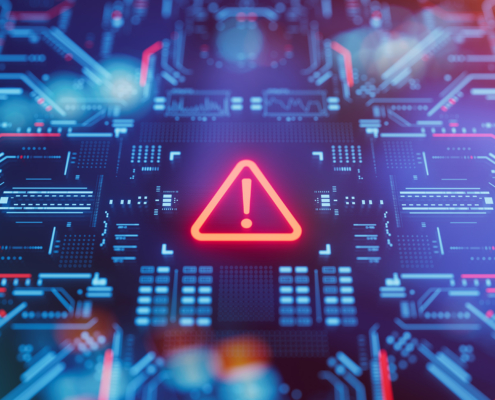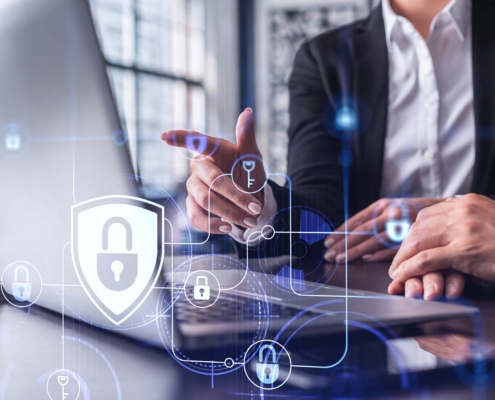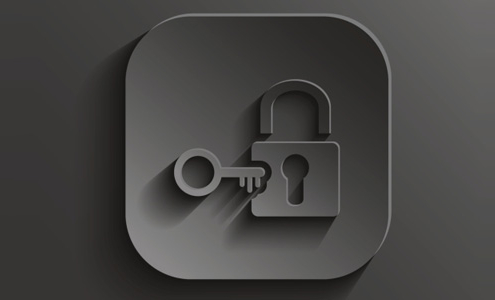 https://www.technologyresponse.com/wp-content/uploads/2024/08/Ultimate-Guide-to-Ransomware.jpg
1250
2000
Abstrakt Marketing
/wp-content/uploads/2024/06/logo-color.svg
Abstrakt Marketing2023-10-26 15:00:002025-04-27 07:32:21How Does Ransomware Work? Understanding Prevention, Detection, and Recovery Strategies
https://www.technologyresponse.com/wp-content/uploads/2024/08/Ultimate-Guide-to-Ransomware.jpg
1250
2000
Abstrakt Marketing
/wp-content/uploads/2024/06/logo-color.svg
Abstrakt Marketing2023-10-26 15:00:002025-04-27 07:32:21How Does Ransomware Work? Understanding Prevention, Detection, and Recovery StrategiesCybersecurity advancements seem to be never ending in today’s day and age. Technology is constantly evolving because of new discoveries and innovative processes—and cybersecurity has to keep up. With new technologies and the evolution of cyberthreats, it’s important to keep up with changes happening in the cybersecurity industry.
How has cybersecurity changed over the years? Continue reading to learn more about how cybersecurity has changed and what updates you can make to improve your security posture in the face of rapid development.
Let’s start by taking a look at some aspects of cybersecurity that have changed the industry in the last few years:
The Adoption of Multi-Factor Authentication
Multi-factor authentication (MFA) has become increasingly popular over the past decade with phishing attacks and ransomware attacks on the rise. Multi-factor authentication strengthens access security because it requires several verification methods for users to log in rather than just one.
In the past, you could just use your username and password to enter a database or software. With MFA, you have to have the correct login information and provide a second form of verification. Common MFA methods include:
- One-time SMS passcodes
- Zip codes
- Personal identification numbers
- Fingerprints
Two-factor authentication (2FA) has become the most common form of MFA, requiring one of the above on top of logging in with a username and password. However, adding a third layer has the potential to change the game when it comes to cybersecurity. It can help make logins immediately more secure and decreases the likelihood of hackers accessing your personal and financial information. This authentication method is beneficial for any type of business and offers one of the best defenses against phishing and ransomware attacks.
Data Encryption
Before the 1970s, data encryption wasn’t even a thought for most people because the process was unfamiliar or seemed too complex. In the modern age of technology, encryption is widespread and helps individuals securely transfer data from one location to another.
Encryption is essentially translating plaintext data to ciphertext to ensure no unauthorized individuals have access to your data. Users access encrypted data with an encryption key, so the only people who can read the files you send are ones with the key.
Cloud Storage Platforms
Cloud computing became popular only in the last couple of decades, with platforms like Google Drive and Microsoft Azure really paving the way for this storage method. In the past, most businesses stored their company data on physical servers—but that comes with a lot of risk.
Servers have the potential to break down and erase all the valuable data they previously held. Losing important data is extremely frustrating and can be expensive. You have to spend time getting the data back or completely recreating it, which takes away from your daily tasks and productivity.
With cloud storage platforms, your data is automatically backed up in the software of your choice. You can add a large number of people to your cloud platform so employees can access the data they need when they need it.
Evolution of Cyberthreats
As technology evolves, that unfortunately means cyberthreats do, too. Cyberattacks include:
- Malware and ransomware
- Computer viruses
- Data breaches
- Phishing
- Password attacks
- Man-in-the-middle attacks
- Denial-of-service attacks
- Cryptojacking
- Insider threats
These attacks often have dangerous side effects, like identity theft, social security number leaks, and stolen data. Cyberattacks sometimes bring your business to a complete halt, depending on what kind you experience. If data is being held for ransom, you have to pay a significant sum of money to get it back, which can put you out of business.
Cyberattacks also damage your customer relationships. If a customer’s credit card information or personal data is stolen, they may not want to work with your business in the future because they’ve lost trust in you. Luckily, many common cyberattacks can be prevented with high-quality cybersecurity measures, like:
Increase in Data Breaches
Data breaches have consistently increased over the years, and 2021 was a record-breaking year for the number of data breaches. A data breach is when information is stolen from your company’s internal systems without your knowledge or authorization. Some of the biggest security breaches in the last few years include:
- Equifax
- U.S. voter data breach
- First American Financial
- Corporation
- Colonial Pipeline
Breaches affect millions of customers worldwide every year and often put companies out of business. Many cybercriminals who execute data breaches often encrypt your data so you can’t access it unless you meet their demands. This is dangerous for a company of any size, but especially for small businesses, because 43% of data breaches involve SMBs and 83% of them are not financially prepared for these attacks.
Here are several cybersecurity measures that help prevent data breaches:
Automatic data backup
Network monitoring
Intrusion prevention and detection
Having a disaster recovery plan in place
Are you a small business owner who wants to decrease the likelihood of a data breach?
Keep Up With Cybersecurity Changes
Cybersecurity is never going to stop changing because technology will always be advancing. While looking back at how cybersecurity has changed over the years, we can only expect more of the same in the future. In order to keep up with cybersecurity advancements, you need to partner with an MSP that understands the industry and has experience protecting large networks.
Technology Response Team solves cybersecurity problems for businesses of any size, whether you have 10 employees or 500. We offer a wide range of cybersecurity and IT solutions that protect your network and keep up with developing trends.
Partner with a proactive and responsive MSP that offers the care and attention your business deserves. Contact our team today to get started.
Share This Post
More Like This
 https://www.technologyresponse.com/wp-content/uploads/2024/08/Ultimate-Guide-to-Ransomware.jpg
1250
2000
Abstrakt Marketing
/wp-content/uploads/2024/06/logo-color.svg
Abstrakt Marketing2023-10-26 15:00:002025-04-27 07:32:21How Does Ransomware Work? Understanding Prevention, Detection, and Recovery Strategies
https://www.technologyresponse.com/wp-content/uploads/2024/08/Ultimate-Guide-to-Ransomware.jpg
1250
2000
Abstrakt Marketing
/wp-content/uploads/2024/06/logo-color.svg
Abstrakt Marketing2023-10-26 15:00:002025-04-27 07:32:21How Does Ransomware Work? Understanding Prevention, Detection, and Recovery Strategies https://www.technologyresponse.com/wp-content/uploads/2024/08/Is-Your-Small-Business-at-Risk.jpg
1250
2000
Abstrakt Marketing
/wp-content/uploads/2024/06/logo-color.svg
Abstrakt Marketing2023-09-21 15:00:002025-04-27 07:32:21Assessing and Overcoming Small Business Cybersecurity Risks
https://www.technologyresponse.com/wp-content/uploads/2024/08/Is-Your-Small-Business-at-Risk.jpg
1250
2000
Abstrakt Marketing
/wp-content/uploads/2024/06/logo-color.svg
Abstrakt Marketing2023-09-21 15:00:002025-04-27 07:32:21Assessing and Overcoming Small Business Cybersecurity Risks https://www.technologyresponse.com/wp-content/uploads/2024/08/Digital-cybersecurity-and-network-protection.jpg
1250
2000
Nate Riggins
/wp-content/uploads/2024/06/logo-color.svg
Nate Riggins2022-11-24 16:00:412025-04-27 07:32:23October Is Cybersecurity Awareness Month
https://www.technologyresponse.com/wp-content/uploads/2024/08/Digital-cybersecurity-and-network-protection.jpg
1250
2000
Nate Riggins
/wp-content/uploads/2024/06/logo-color.svg
Nate Riggins2022-11-24 16:00:412025-04-27 07:32:23October Is Cybersecurity Awareness Month https://www.technologyresponse.com/wp-content/uploads/2024/08/Is-Your-Small-Business-Prepared_.jpg
1250
2000
Nate Riggins
/wp-content/uploads/2024/06/logo-color.svg
Nate Riggins2022-10-18 15:00:002025-04-27 07:32:23Signs It’s Time To Upgrade IT Services
https://www.technologyresponse.com/wp-content/uploads/2024/08/Is-Your-Small-Business-Prepared_.jpg
1250
2000
Nate Riggins
/wp-content/uploads/2024/06/logo-color.svg
Nate Riggins2022-10-18 15:00:002025-04-27 07:32:23Signs It’s Time To Upgrade IT Services https://www.technologyresponse.com/wp-content/uploads/2024/08/Is-Your-Small-Business-Prepared_.jpg
1250
2000
Nate Riggins
/wp-content/uploads/2024/06/logo-color.svg
Nate Riggins2022-09-26 15:00:002025-04-27 07:32:23A Guide to Cybersecurity for Small Businesses
https://www.technologyresponse.com/wp-content/uploads/2024/08/Is-Your-Small-Business-Prepared_.jpg
1250
2000
Nate Riggins
/wp-content/uploads/2024/06/logo-color.svg
Nate Riggins2022-09-26 15:00:002025-04-27 07:32:23A Guide to Cybersecurity for Small Businesses https://www.technologyresponse.com/wp-content/uploads/2024/08/Is-Penetration-Testing-Essential.jpg
1250
2000
Nate Riggins
/wp-content/uploads/2024/06/logo-color.svg
Nate Riggins2022-09-22 15:00:002025-04-27 07:32:23How Important Is Network Penetration Testing?
https://www.technologyresponse.com/wp-content/uploads/2024/08/Is-Penetration-Testing-Essential.jpg
1250
2000
Nate Riggins
/wp-content/uploads/2024/06/logo-color.svg
Nate Riggins2022-09-22 15:00:002025-04-27 07:32:23How Important Is Network Penetration Testing? https://www.technologyresponse.com/wp-content/uploads/2024/08/April-Blog-2-Image.jpg
1250
2000
Nate Riggins
/wp-content/uploads/2024/06/logo-color.svg
Nate Riggins2022-05-19 15:00:002025-04-27 07:32:24What Is Penetration Testing?
https://www.technologyresponse.com/wp-content/uploads/2024/08/April-Blog-2-Image.jpg
1250
2000
Nate Riggins
/wp-content/uploads/2024/06/logo-color.svg
Nate Riggins2022-05-19 15:00:002025-04-27 07:32:24What Is Penetration Testing? https://www.technologyresponse.com/wp-content/uploads/2024/08/2021April23Security_A_PH-ASa9KY.jpeg
300
900
Nate Riggins
/wp-content/uploads/2024/06/logo-color.svg
Nate Riggins2021-04-23 21:00:122025-04-27 07:32:24Protect your Facebook and Twitter from hackers
https://www.technologyresponse.com/wp-content/uploads/2024/08/2021April23Security_A_PH-ASa9KY.jpeg
300
900
Nate Riggins
/wp-content/uploads/2024/06/logo-color.svg
Nate Riggins2021-04-23 21:00:122025-04-27 07:32:24Protect your Facebook and Twitter from hackers https://www.technologyresponse.com/wp-content/uploads/2024/08/2021March31Security_A_PH-yXGGc3.jpeg
300
900
Nate Riggins
/wp-content/uploads/2024/06/logo-color.svg
Nate Riggins2021-03-31 21:00:002025-04-27 07:32:255 Ways systems can be breached
https://www.technologyresponse.com/wp-content/uploads/2024/08/2021March31Security_A_PH-yXGGc3.jpeg
300
900
Nate Riggins
/wp-content/uploads/2024/06/logo-color.svg
Nate Riggins2021-03-31 21:00:002025-04-27 07:32:255 Ways systems can be breachedAbout Us
Technology Response Team delivers comprehensive IT and cybersecurity solutions for nationwide businesses with locations in Denver and Louisville.